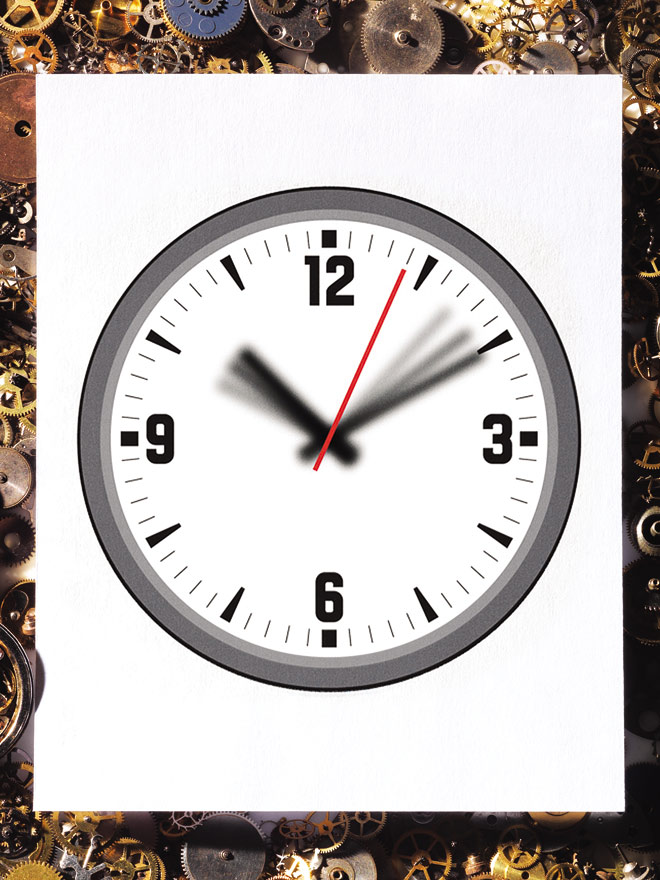

Not every second is made the same—at least as far as our noggins are concerned.
Quickly glance at an analog clock. You might find that the second hand seems stuck at first. But if the precise machinery ensures every second is the same, why the pause?
Amelia Hunt, a neuroscientist with the University of Aberdeen in Scotland, says the standstill (nicknamed the stopped-clock illusion) occurs because our brains anticipate what we will see before we actually view it. When we move our eyes, everything shifts position on the retina. If we couldn’t sense those adjustments coming, we’d be incredibly disoriented. So our brains figured a way to cope: As we navigate the world, our visual cortex creates and updates an interactive map of what’s around us. The brain uses it to predict what we’ll see to prevent discombobulation.
So, when you look up at a clock, your mapmaking brain has foreseen what it will look like. And when your gaze does reach it, you are a step ahead of time. In a 2009 study, Hunt’s team found that, on average, clock gazers set the time as 39 milliseconds earlier than what actually landed on the clock.
For a fleeting second, time might seem to stop. Too bad it won’t help you catch up if you’re running late.
This article was originally published in the September/October 2017 Mysteries of Time and Space issue of Popular Science.
